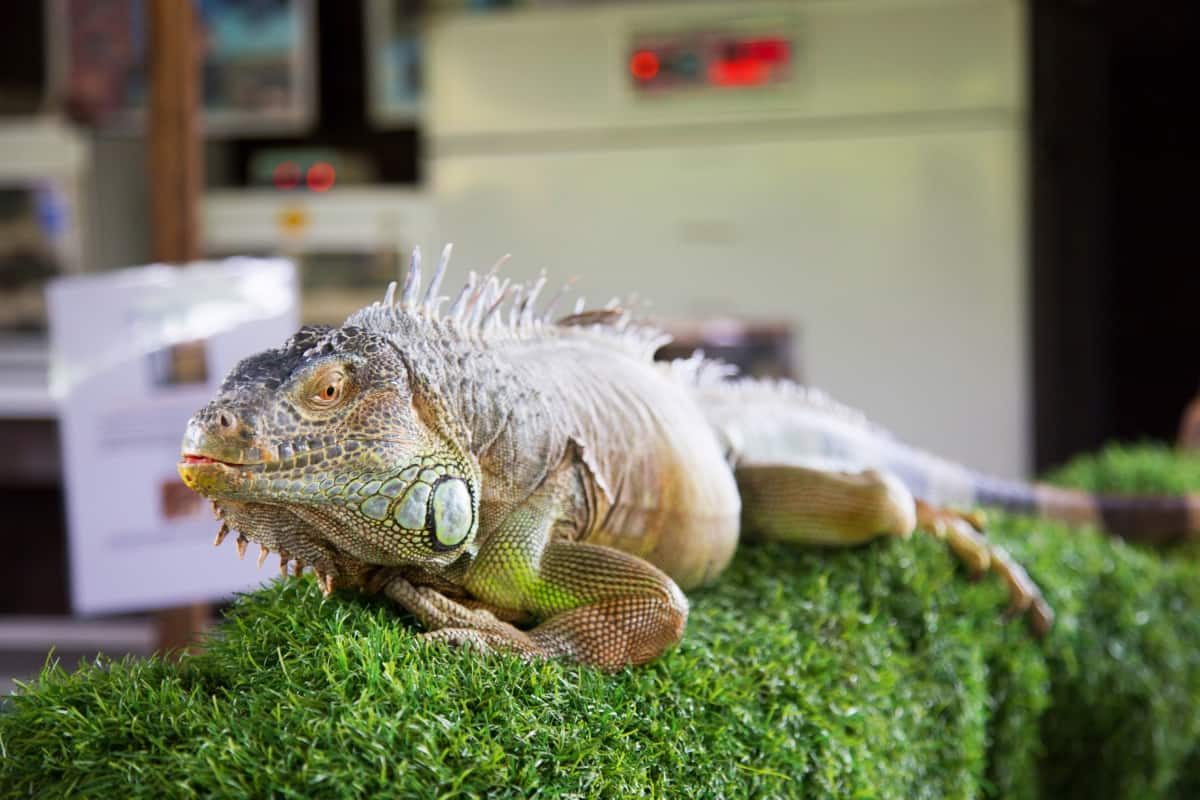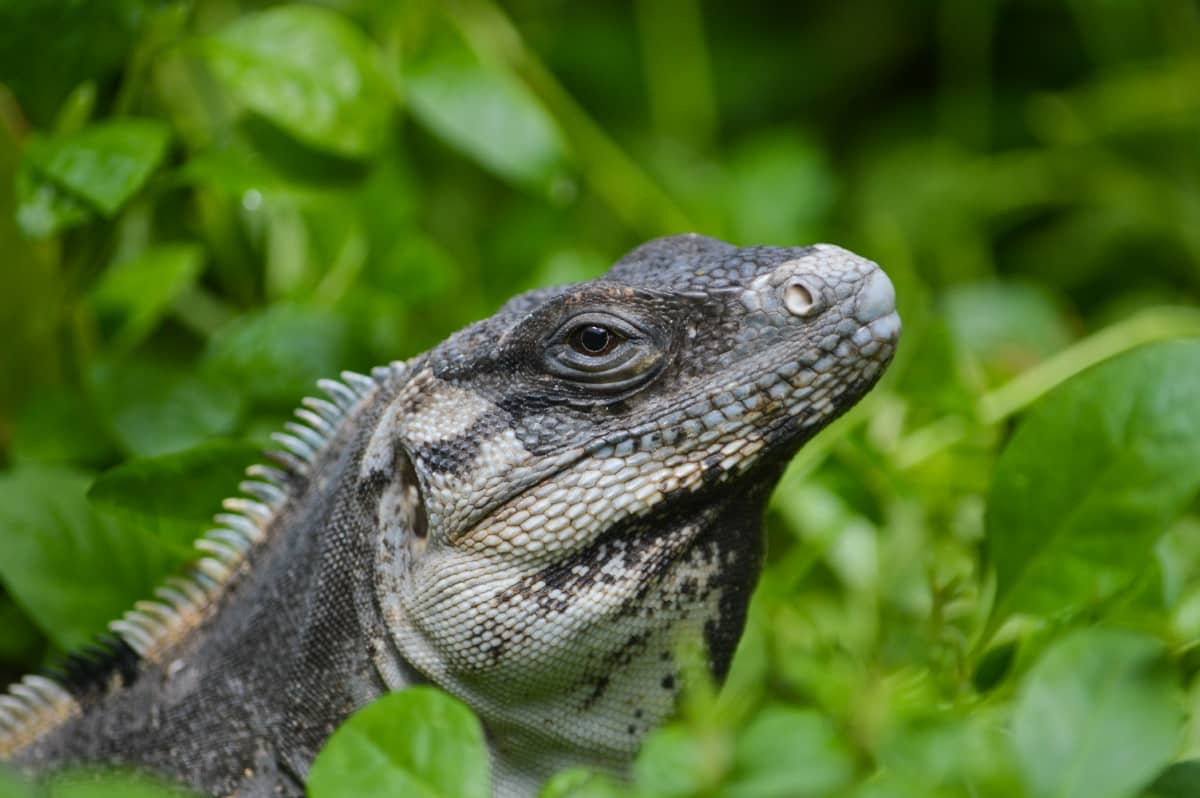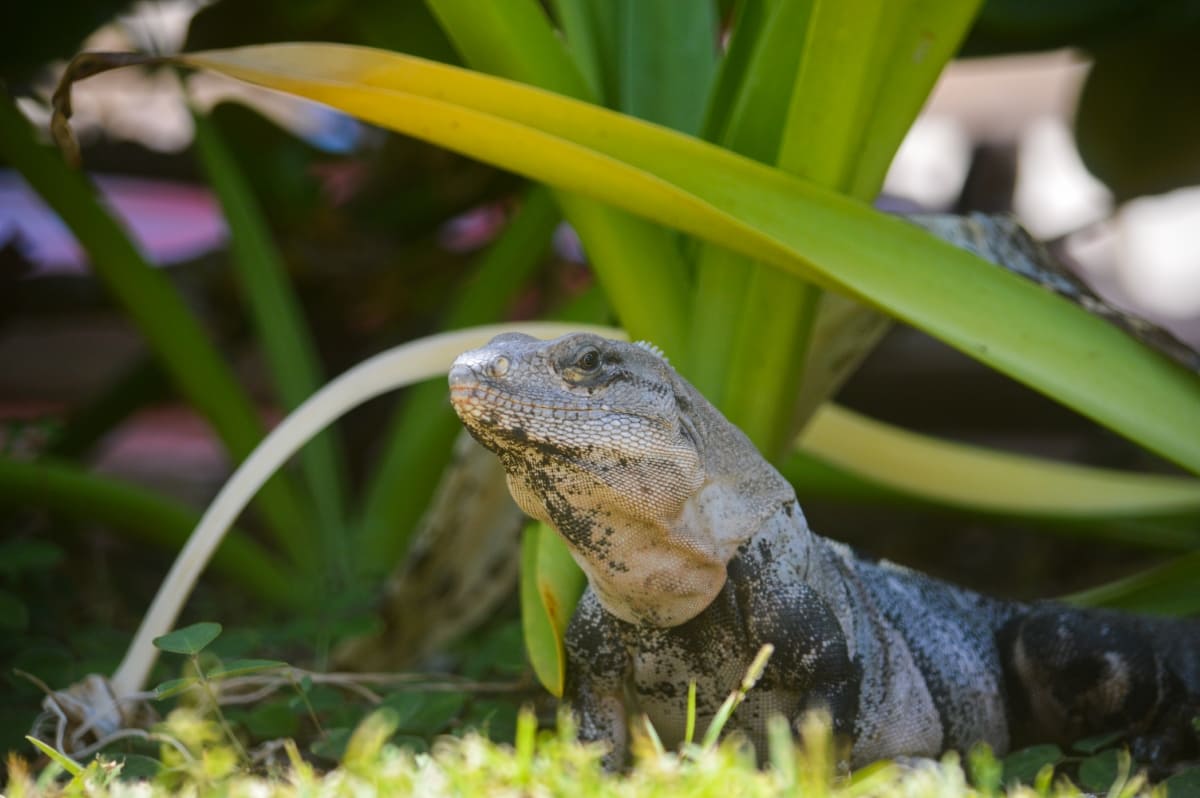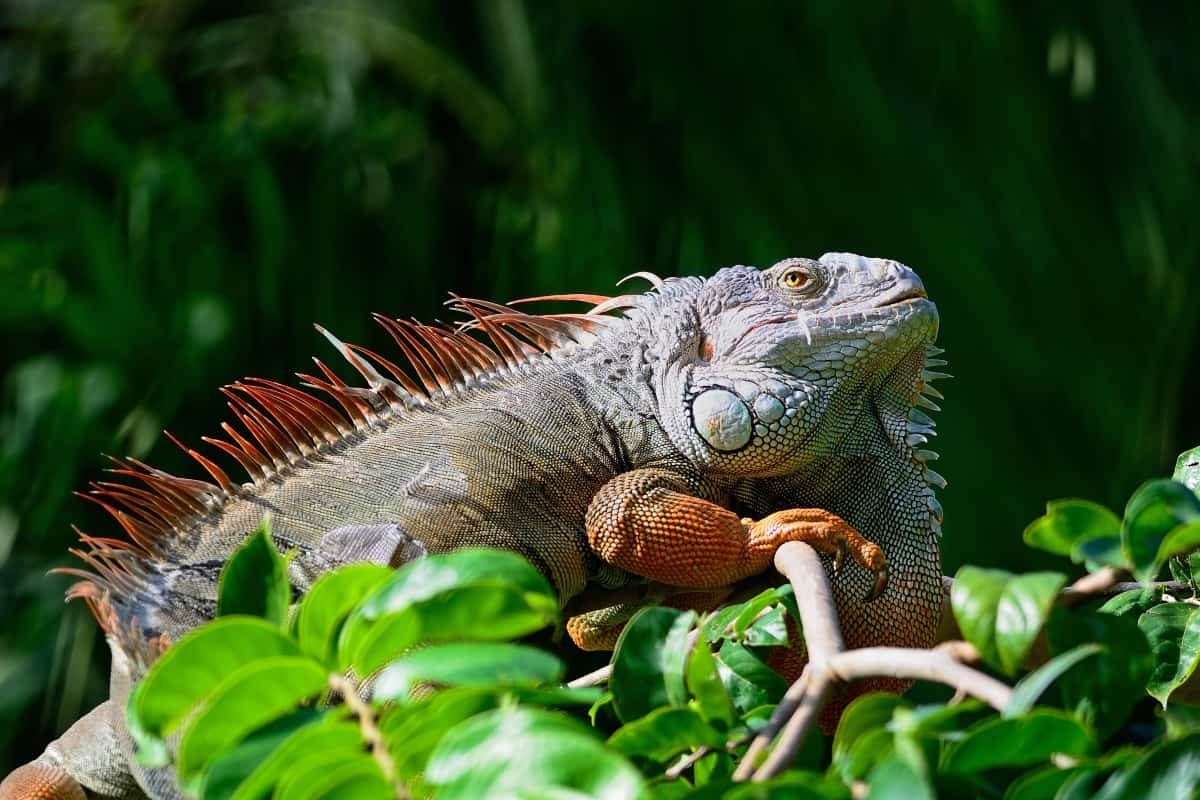Defending your garden against iguanas can be challenging but necessary, especially in regions where these reptiles are prevalent. Iguanas, while fascinating creatures, can cause significant damage to your garden, feasting on a wide range of plants. Understanding iguana behavior and employing various strategies, such as iguana deterrents for gardens, iguana-proof plants, homemade repellents, and physical barriers, can effectively keep iguanas out of your garden.

Implementing non-toxic control methods, like iguana fencing solutions, motion-activated sprinklers, and ultrasonic devices, alongside natural remedies, ensures the safety of both your greens and the iguanas. This article explores proven methods, including DIY exclusion techniques, iguana barrier methods, and eco-friendly repellents, to prevent iguana garden damage while adhering to legal and ethical wildlife treatment standards.
Proven Methods to Keep Iguanas Out of Your Garden
Understanding Iguanas
Identifying the Problem
Identifying iguana presence in your garden involves spotting signs like chewed plants, iguana droppings, and burrows. These reptiles, primarily herbivorous, can decimate various garden plants, making it crucial to recognize their impact promptly.
Iguana Behavior and Habits
Understanding iguana behavior is key to implementing effective deterrent strategies. Iguanas are creatures that are active during daylight hours and thrive in warm, sunny habitats. They are excellent climbers and swimmers, influencing the type of barriers and deterrents needed to keep them at bay.
Garden Design and Plant Choice
Iguana-Resistant Plants
Incorporating iguana-proof garden plants is a proactive approach to minimizing garden damage. Plants such as oleander, citrus, and crotons are less appealing to iguanas, providing a natural deterrent against these garden invaders.
Strategic Plant Placement
Strategically positioning less appealing vegetation along the garden’s edges serves as a natural deterrent, diminishing the attractiveness of more desirable plants within, effectively deterring iguana damage.
Physical Barriers
Fencing Options
Iguana fencing solutions involve installing tall, smooth barriers that iguanas cannot climb. Materials like sheet metal or solid vinyl can be effective, with the fence angled outward at the top to prevent iguanas from scaling.
Netting and Enclosures
Protecting specific plants or garden sections with netting and enclosures can provide a physical barrier against iguanas. These structures should be sturdy and well-anchored to withstand iguana intrusion.
Habitat Modification
Removing Attractants
Minimizing iguana attractants involves eliminating food sources, such as fallen fruits and flowers, and reducing shelter opportunities by clearing debris and filling in caves, making your garden less inviting to iguanas.
Managing Water Sources
Since iguanas require water for survival, managing water sources by covering pools when not in use and ensuring no standing water sources in the garden can deter iguanas from settling in your yard.
In case you missed it: How to Keep Gophers Out of Your Garden Yard: Tips, Ideas and Techniques

Natural Deterrents
Homemade Repellents
Homemade iguana repellents from ingredients like garlic, pepper, and lemon can deter iguanas with their strong scents and flavors. These repellents must be applied frequently, especially after rain, to maintain effectiveness.
Beneficial Predators
Introducing or encouraging beneficial predators, such as birds of prey, can provide a natural method of iguana control. Creating a habitat that attracts these predators can help keep the iguana population in check.
Commercial Repellents and Deterrents
Types and Effectiveness
Commercial iguana repellents come in various forms, including sprays and granules containing ingredients that iguanas find unpalatable. The best iguana repellent for your garden will depend on its specific conditions and the extent of the iguana problem.
Application Tips
For commercial repellents to be effective, follow the manufacturer’s instructions carefully, paying attention to application rates and reapplication schedules, especially after heavy rains, to ensure ongoing protection for your garden.
Using Technology
Motion-Activated Sprinklers
Motion-activated sprinklers can serve as a safe iguana deterrent, using sudden water sprays to startle and ward off iguanas from entering garden areas. They can prove highly effective when integrated with additional deterrent strategies.
Ultrasonic Devices
Ultrasonic iguana deterrents emit high-frequency sounds that are uncomfortable for iguanas but inaudible to humans, providing a non-invasive way to keep iguanas away from garden areas without causing them harm.
In case you missed it: Urban Gardening in Grow Bags: Plant in Small Space and Get Big Harvest

Regular Monitoring and Maintenance
Inspection Routines
Establishing regular garden inspection routines allows for the early detection of iguana activity, enabling timely interventions to prevent significant garden damage and maintain the effectiveness of deterrent strategies.
Repair and Adjust Defenses
Regularly checking and maintaining physical barriers, repellent systems, and deterrent devices ensures they remain effective over time, adjusting and repairing as necessary to address any weaknesses or breaches.
Legal and Ethical Considerations
Wildlife Laws and Regulations
Prior to enacting measures for iguana control, it’s crucial to acquaint oneself with pertinent local wildlife statutes and regulations. This ensures adherence, mitigating any legal complications while addressing iguana population management.
Humane Treatment of Iguanas
When dealing with iguanas, it’s crucial to employ humane treatment methods, focusing on deterrents and controls that do not harm the animals. Ethical considerations should guide the selection and application of iguana management strategies, ensuring coexistence with local wildlife.
In case you missed it: Boost Your Harvest: Expert Guide to NPK Ratios for Vegetable Gardening

Conclusion
Effectively managing iguanas in your garden requires understanding their behavior, strategic garden design, physical barriers, habitat modification, and natural and commercial deterrents. Gardeners can protect their greens by employing humane and eco-friendly strategies, such as iguana-resistant plants, homemade repellents, and technology like motion-activated sprinklers while coexisting with local wildlife.
Regular monitoring and adherence to legal and ethical guidelines ensure that iguana control efforts are effective and respectful of the environment and iguana welfare, maintaining the delicate balance between human and animal habitats.
- Feed Your Flock for Less: Top 10 Tips to Save on Chicken Feed
- Ultimate Guide to Ossabaw Island Hog: Breeding, Raising, Diet, and Care
- Hatching Answers: The Top 10 Reasons Your Chickens Aren’t Laying Eggs
- Eggs and Economics: Breaking Down the Cost of Raising Backyard Chickens
- Defend Your Greens: Proven Methods to Keep Iguanas Out of Your Garden
- Ultimate Guide to Cinnamon Queen Chicken: A Comprehensive Guide for Beginners
- Ultimate Guide to California Tan Chicken: Breeding, Raising, Diet, Egg-Production and Care
- Ultimate Guide to Marsh Daisy Chicken: Breeding, Raising, Diet, and Care
- 10 Types of Chicken Farming Businesses You Can Start for Profits